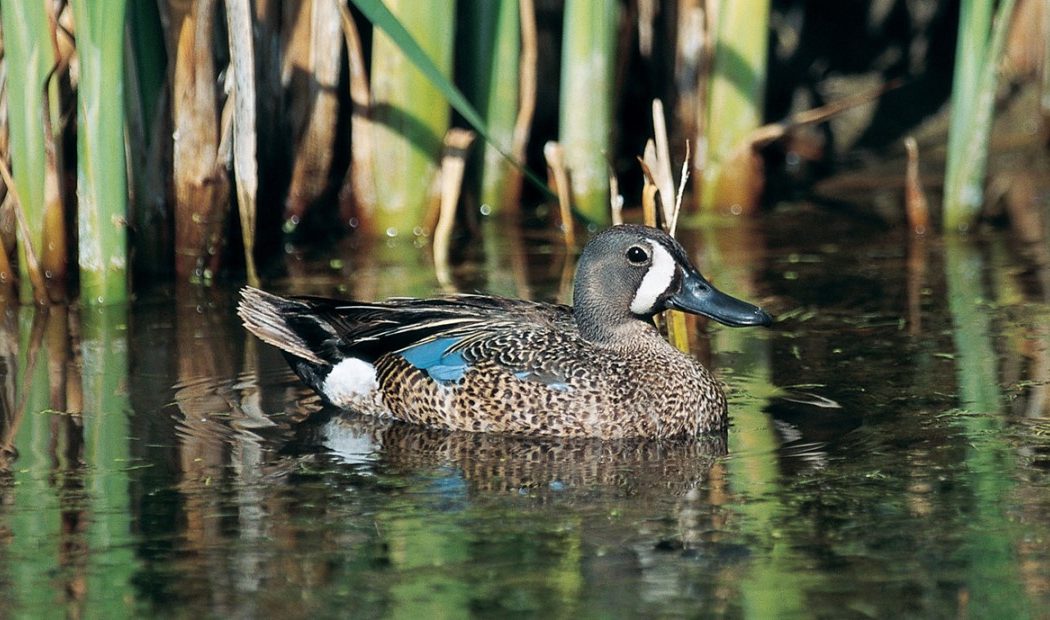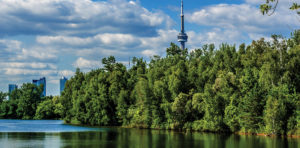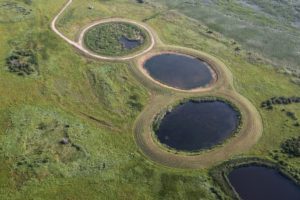In many Canadian cities, nature can be hard to find. But natural habitats like wetlands that exist amid the concrete and pavement are little patches of gold. They’re extremely valuable – and they’re worth saving and restoring.
February 2 was World Wetlands Day. In honor, Ducks Unlimited Canada (DUC) joined conservation organizations from around the globe to shine a spotlight on the role wetlands play in a sustainable urban future.
The problem is, wetlands are often seen as wastelands. As cities expand and demand for land increases, these shallow marshy areas are often filled in or built upon to make room for housing and other development.
“Urban wetlands are areas of high productivity and biodiversity,” says Karla Guyn, chief executive officer for Ducks Unlimited Canada. “Protecting them is essential to the long-term health and prosperity of our communities. Not only do wetlands provide a beautiful, natural focal point within neighbourhoods, they improve air and water quality. They also guard against floods, help prevent droughts and store carbon.”
Despite the February 1, 2018 announcement of Environment and Climate Change Canada‘s misguided decision to end their support for the important National Wetland Conservation Fund, conserving and restoring wetlands to harness their natural power is something that’s gaining ground in Canada. The use of natural solutions as part of green infrastructure programming is becoming more popular with governments and city planners as they strive to make their communities more resilient and environmentally sustainable. Green infrastructure, which includes protected areas, vegetation and wetlands, takes the place of traditional built infrastructure like dry dams or water treatment systems. It’s building with nature instead of non-renewable resources.
“While funding through the National Wetland Conservation Fund has ended, we’re encouraged that more urban and rural municipalities are taking a proactive approach to their planning by seeking out ways to include natural habitat as development proceeds,” says Guyn.
DUC is working with cities like Moncton, New Brunswick and Edmonton, Alberta, as well as Winnipeg and Brandon, Manitoba to construct naturalized stormwater retention ponds. Wetland-like in appearance and function, these basins incorporate biological processes to both restore natural filtration and store water.
Cities like these are setting important examples for others to follow. Despite how important wetland conservation is to our communities, wetlands are under threat. Up to 80 acres (32 hectares) are lost every day in settled areas of Canada. This is the equivalent of about 45 soccer fields every 24 hours.
“Canada is home to 25 per cent of the world’s wetlands,” says Guyn. “And many of them are found in highly populated areas. World Wetlands Day reminds all Canadians of the critical role wetlands play in our lives – and the need to conserve them.”
Wetlands are some of Canada’s most valuable real estate that hold the key to making our cities more livable. Here’s how they do that:
- Flood prevention: Wetlands act as sponges that capture, store and slowly release water over a long period of time. In coastal communities, saltmarshes work as a buffer against storm surges.
- Clean water: Wetlands naturally filter harmful nutrients and pollutants from water.
- Fight climate change: Wetlands store carbon and keep it from being released into the atmosphere as greenhouse gas.
- Promote healthy, happy lifestyles: Wetlands provide residents with green spaces where they can recreate and enjoy diverse plant and animal life.
World Wetlands Day (February 2) marks the adoption of the Convention of Wetlands, which took place in 1971 in the Iranian city of Ramsar. It’s a treaty negotiated by countries and non-governmental organizations that provides the framework for the conservation and wise use of wetlands. Canada is one of the treaty’s contracting parties and currently has 37 sites designated as Wetlands of International Importance (Ramsar sites).
Ducks Unlimited Canada (DUC) is the national leader in wetland conservation and restoration. A registered charity, DUC partners with government, industry, non-profit organizations and landowners to conserve wetlands that are critical to waterfowl, wildlife and the environment.
Featured photo by DUC/Brian Wolitski.



